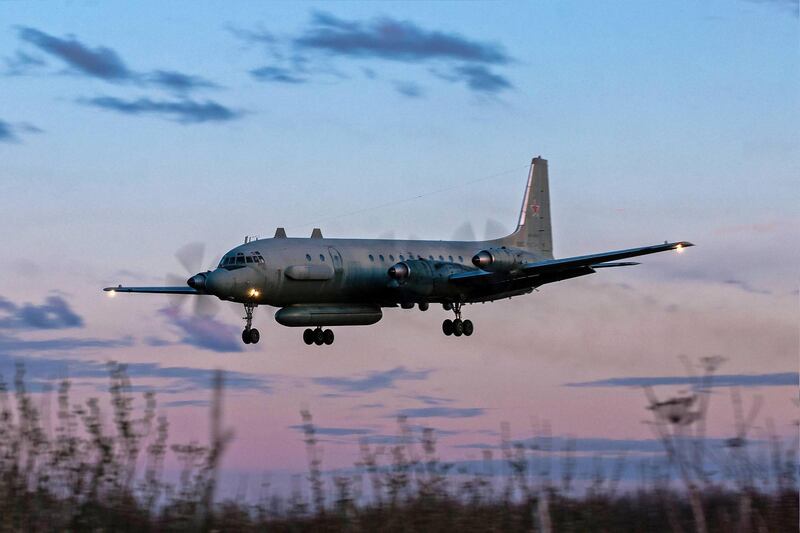Russia is to supply Syria with an advanced air defence system in response to the shooting down of one of Moscow's planes that killed 15 servicemen and was initially blamed on Israel.
In an indirect warning at Israel, President Vladimir Putin's military said it would also start to jam the radar and satellite signals of planes that attack Syrian territory from the Mediterranean.
The Russian deaths last week have forced Moscow to take "adequate retaliatory measures to increase the safety of its military fighting international terrorism in Syria," Defence Minister Sergei Shoigu said in a televised address on Monday.
"A modern S-300 air defence missile system will be transferred to the Syrian armed forces within two weeks," he said, significantly increasing the combat capabilities of President Bashar Al Assad's forces.
Israel, which has struck Syria scores of times during the seven-year war, said after the incident that it would work to improve "deconfliction" of its missions, but would not halt them. It has long lobbied Moscow not to provide the S-300 system to Syria.
The decision to supply the S-300 technology was taken by President Putin because of the downing of the Russian aircraft, the defence minister said.
The Russian IL-20 surveillance plane crashed near Latakia in northern Syria.
Russia has said Syria shot the plane down shortly after Israeli jets struck targets in the area, but accused Israel of creating dangerous conditions by failing to give sufficient advance notice.
The Russian Defence Ministry initially blamed the plane's loss on Israel, saying its fighter jets pushed the plane into the line of fire. Mr Putin then sought to defuse tensions, mentioning "a chain of tragic accidental circumstances".
Last week, Russia's foreign ministry said Israel must provide Moscow with more information about the downing of the military aircraft near the Syrian coast. However, the Kremlin also said Russia's decision was not targeted against anyone and only serves to protect Russian troops in Syria.
Earlier in the war, Russia suspended a supply of S-300s, which Israel feared Syria could use against it. Mr Shoigu said Russia is now going to go ahead with the shipment because "the situation has changed". Russian officials say Syria's outdated S-200 systems aren't sophisticated enough to identify the Russian plane as a friendly one.
"We are convinced that these measures will calm down some hotheads and keep them from careless actions which pose a threat to our troops," Mr Shoigu said.
Kremlin spokesman Dmitry Peskov later told journalists that the decision to supply the weapons was "not directed at any third country". "Russia needs to increase safety of its military and it should be clear for everyone," he said.
But he also repeated Moscow's accusations that Israel was to blame for the crash: "No doubt that according to our military experts, deliberate action by Israeli pilots was the reason for the tragedy and this cannot but harm our (Russia-Israeli) ties."
______________
Read more:
Assad blames Israel over downing of Russian plane
US confirms Israeli missiles struck Iranian storage facility in Latakia
Vladimir Putin blames downing of Russian plane in Syria on 'chance events'
Russian military jet carrying 14 servicemen vanishes off radar
_______________
Russia launched its campaign in Syria to support President Al Assad in 2015, and though the involvement turned the tide of war in favour of Syrian government forces, Moscow has since tried to play a careful balancing act, maintaining good ties both with Iran and Israel.
For its part, Israel is wary of Iran's growing influence in Syria, which is bringing its archenemy closer to its borders. Last week's downing has put Russia's relationship with Israel to the test.
Russia's stepped-up role in Syria enabled President Assad's forces, which had been losing ground to the armed opposition, to gain the upper hand and reclaim significant territory held by the rebels.
In recent months, the government recaptured many areas that were controlled by the opposition. And last week, Russia reached a deal with Turkey that averted a Russian-backed offensive against the northwestern province of Idlib, one of the last areas out of government control.






